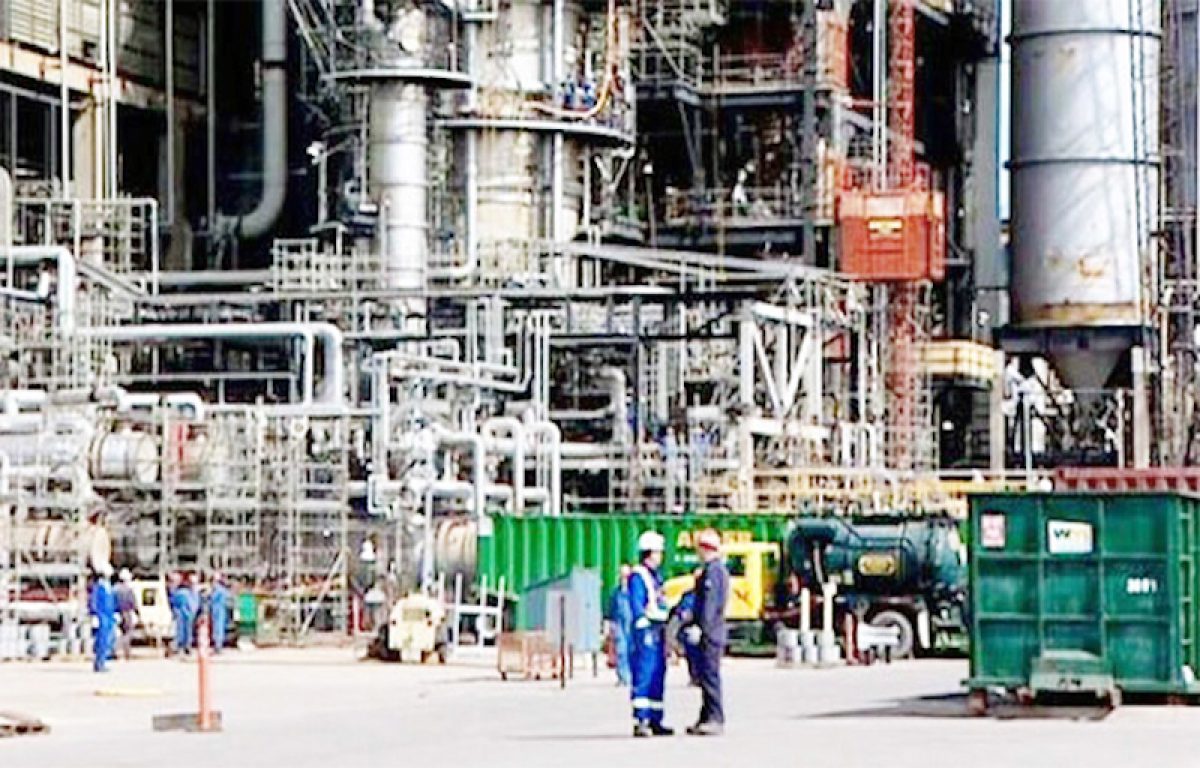The Dangote Refinery, a pivotal project designed to reduce Nigeria’s dependency on imported petroleum products, is facing an unexpected challenge as local marketers continue to boycott its offerings.
This development was disclosed by Devakumar V.G. Edwin, the Vice President of Dangote Industries Limited, during a recent X (formerly Twitter) space session.
Despite the refinery’s efforts to provide affordable fuel, many Nigerian traders are opting to import refined products from abroad, leaving the refinery’s domestic sales at a mere 3 percent of its capacity.
As Edwin explained, “The whole purpose of doing this refinery in Nigeria was to utilize our local crude instead of exporting raw materials and importing finished products. We should be able to refine and use the finished products within Nigeria and produce more to export the surplus.”
The refinery’s design capacity allows it to produce up to 54 million liters of refined petroleum products daily, theoretically enough to meet the country’s entire fuel demand.
Despite these intentions, local petroleum marketers have shown a strong preference for importing fuel, sidelining the refinery’s products.
Edwin revealed that only a small fraction—about 3 per cent—of the refinery’s production is being purchased locally, while the remaining 97 per cent is exported.
This has forced the refinery to seek international markets for its products, including diesel and jet fuel, despite these products being available at lower prices domestically.
READ ALSO: Dangote announces further reduction in pump price of Diesel, aviation fuel
Industry experts suggest that the resistance from local marketers may be tied to a combination of pricing and market dynamics.
Edwin indicated that the refinery’s competitive pricing, aimed at fostering local sales, has been met with resistance from traders who accuse the refinery of undercutting the market.
Despite these obstacles, the refinery’s production capacity remains robust. Edwin noted that 44 per cent of the refinery’s output could cover 100 percent of Nigeria’s refined product needs. This potential, however, is being stifled by the ongoing boycott from local traders.
According to the National Bureau of Statistics (NBS), Nigeria’s import of Premium Motor Spirit (PMS) in the second quarter of 2024 reached a record N3.22 trillion, representing 25 per cent of total imports for the period. This figure marks a 100 per cent increase from the same period in 2023.
Industry experts express concern over the long-term implications of the current standoff.
Dr. Ayo Teriba, CEO of Economic Associates, believes that the reluctance of local marketers to support the refinery could hinder Nigeria’s broader economic goals.
“This is not just about Dangote; it’s about the future of Nigeria’s energy independence. The refinery’s success is tied to our ability to reduce our reliance on imports and build a self-sustaining economy.”
Similarly, energy analyst Dolapo Oni emphasized the importance of government intervention to align market forces with national interests.
“The government needs to ensure that local market dynamics do not undermine critical infrastructure projects like the Dangote Refinery. Encouraging local uptake of its products should be a priority to realize the full economic benefits.”

 Health6 days ago
Health6 days ago
 Latest1 week ago
Latest1 week ago
 Football1 week ago
Football1 week ago
 Latest1 week ago
Latest1 week ago
 Latest5 days ago
Latest5 days ago
 Health6 days ago
Health6 days ago
 Latest1 week ago
Latest1 week ago
 News6 days ago
News6 days ago

